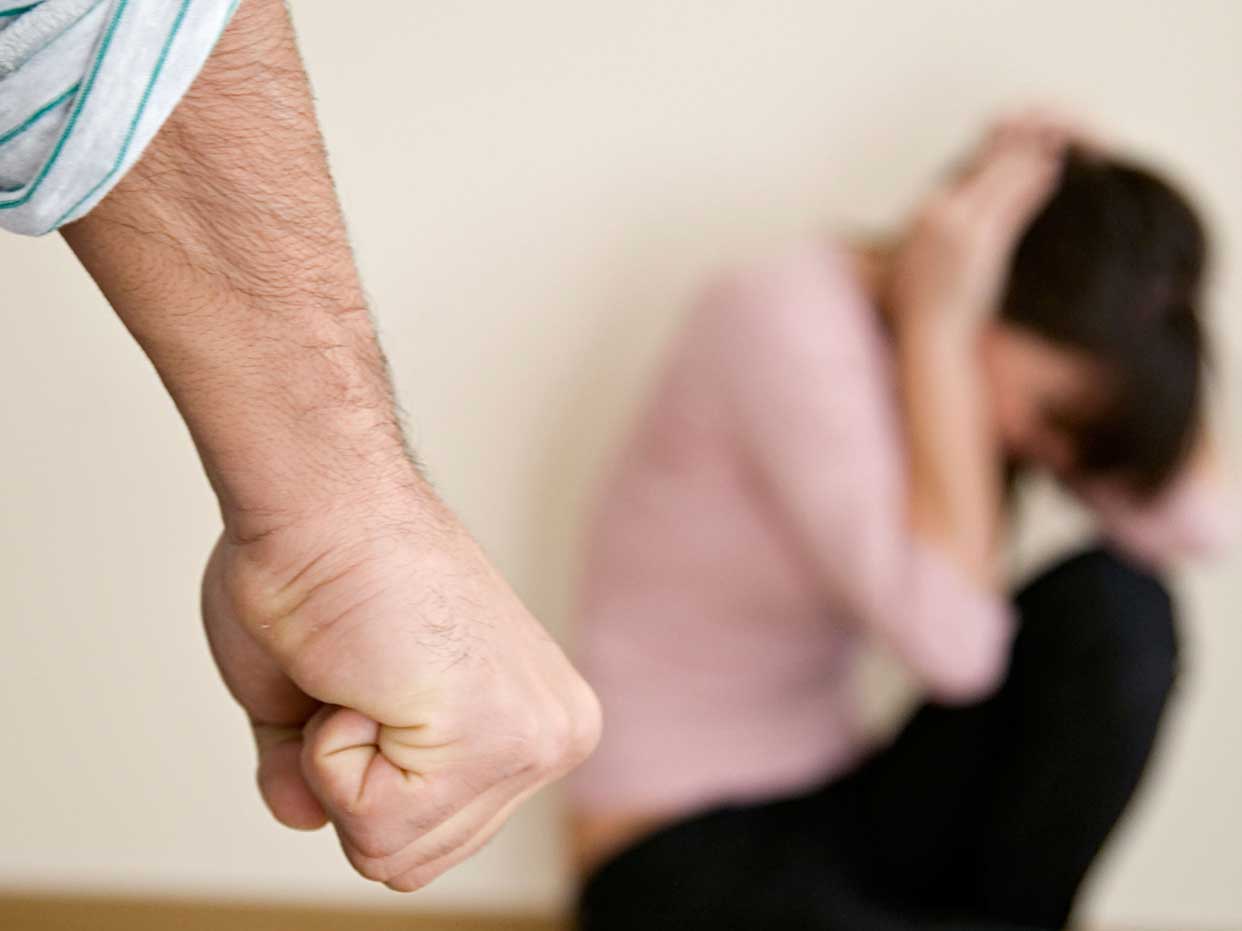MPs demand action as domestic abuse helpline calls jump by half
Coronavirus lockdown has caused a ‘surge’ in domestic violence

A free daily email with the biggest news stories of the day – and the best features from TheWeek.com
You are now subscribed
Your newsletter sign-up was successful
Calls to a domestic abuse helpline rose by 49% and killings have doubled amid a “surge” in violence, according to a new report.
Researchers at the Counting Dead Women Project have told that MPs 14 women and two children were killed in the first three weeks of lockdown - the largest number of killings in a three-week period for 11 years and more than double the average rate.
The home affairs select committee said urgent action is required to tackle a rise in domestic abuse that has been sparked by the stay-at-home advice under the coronavirus lockdown.
The Week
Escape your echo chamber. Get the facts behind the news, plus analysis from multiple perspectives.

Sign up for The Week's Free Newsletters
From our morning news briefing to a weekly Good News Newsletter, get the best of The Week delivered directly to your inbox.
From our morning news briefing to a weekly Good News Newsletter, get the best of The Week delivered directly to your inbox.
“Staying at home is an important part of the strategy to prevent coronavirus from spreading and save lives, but for some people home isn’t safe,” said a spokeswoman.
She added: “There are already alarming signs of the rise in domestic abuse. Our cross-party committee is calling for an urgent action plan from government setting out practical measures to tackle domestic abuse as an integrated part of the fight against Covid-19.”
In particular, the committee said support services for domestic abuse and vulnerable children needed “urgent and direct funding”, otherwise victims would be put “at much greater risk of harm”.
–––––––––––––––––––––––––––––––For a round-up of the most important stories from around the world - and a concise, refreshing and balanced takeon the week’s news agenda - try The Week magazine. Start your trial subscription today –––––––––––––––––––––––––––––––
A free daily email with the biggest news stories of the day – and the best features from TheWeek.com
The committee is urging the government to set up an emergency funding package, ring-fenced within the £750m fund the government has promised for charities dealing with the coronavirus crisis.
The MPs have also said “safe spaces,” where victims can seek help, should be rolled out to supermarkets and other stores.
Yesterday, The Observer said that: “the enforced social isolation of a lockdown is a particularly terrifying prospect for victims of domestic abuse and their offspring”.
Those calling for the lockdown to be lifted have raised domestic violence as an argument. Last week, a government adviser said the “public health consequences” of the restrictions include an uptick in domestic abuse.
-
 Why is the Trump administration talking about ‘Western civilization’?
Why is the Trump administration talking about ‘Western civilization’?Talking Points Rubio says Europe, US bonded by religion and ancestry
-
 Quentin Deranque: a student’s death energizes the French far right
Quentin Deranque: a student’s death energizes the French far rightIN THE SPOTLIGHT Reactions to the violent killing of an ultra-conservative activist offer a glimpse at the culture wars roiling France ahead of next year’s elections.
-
 Secured vs. unsecured loans: how do they differ and which is better?
Secured vs. unsecured loans: how do they differ and which is better?the explainer They are distinguished by the level of risk and the inclusion of collateral
-
 A Nipah virus outbreak in India has brought back Covid-era surveillance
A Nipah virus outbreak in India has brought back Covid-era surveillanceUnder the radar The disease can spread through animals and humans
-
 Covid-19 mRNA vaccines could help fight cancer
Covid-19 mRNA vaccines could help fight cancerUnder the radar They boost the immune system
-
 The new Stratus Covid strain – and why it’s on the rise
The new Stratus Covid strain – and why it’s on the riseThe Explainer ‘No evidence’ new variant is more dangerous or that vaccines won’t work against it, say UK health experts
-
 RFK Jr. vaccine panel advises restricting MMRV shot
RFK Jr. vaccine panel advises restricting MMRV shotSpeed Read The committee voted to restrict access to a childhood vaccine against chickenpox
-
 RFK Jr. scraps Covid shots for pregnant women, kids
RFK Jr. scraps Covid shots for pregnant women, kidsSpeed Read The Health Secretary announced a policy change without informing CDC officials
-
 New FDA chiefs limit Covid-19 shots to elderly, sick
New FDA chiefs limit Covid-19 shots to elderly, sickspeed read The FDA set stricter approval standards for booster shots
-
 RFK Jr.: A new plan for sabotaging vaccines
RFK Jr.: A new plan for sabotaging vaccinesFeature The Health Secretary announced changes to vaccine testing and asks Americans to 'do your own research'
-
 Five years on: How Covid changed everything
Five years on: How Covid changed everythingFeature We seem to have collectively forgotten Covid’s horrors, but they have completely reshaped politics